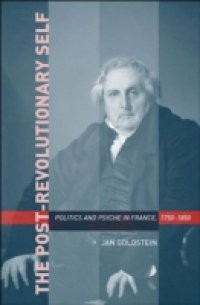In the wake of the French Revolution, as attempts to restore political stability to France repeatedly failed, a group of concerned intellectuals identified a likely culprit: the prevalent sensationalist psychology, and especially the flimsy and fragmented self it produced. They proposed a vast, state-run pedagogical project to replace sensationalism with a new psychology that showcased an indivisible and actively willing self, or moi. As conceived and executed by Victor Cousin, this long-lived project singled out the male bourgeoisie for training in selfhood --Cousin and his disciples deemed workers and women incapable of the introspective finesse necessary to appropriate that self in practice.

